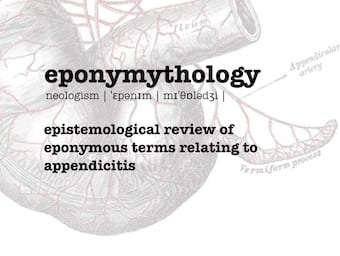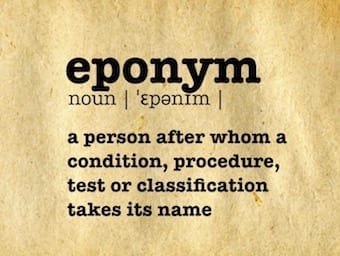
William Gissane
William Gissane (1898 - 1981) was an Australian born, British surgeon. Birmingham Accident Hospital first director; critical angle of Gissane

William Gissane (1898 - 1981) was an Australian born, British surgeon. Birmingham Accident Hospital first director; critical angle of Gissane

Dunphy sign [* cough test; coughing test ] increased abdominal pain, localised to the right lower quadrant, with coughing. Attributed to John Englebert Dunphy (1908-1981)

Funtabulously Frivolous Friday Five 303 - Just when you thought your brain could unwind The medical trivia FFFF.
Sophie Spitz (1910 - 1956) was an American pathologist. Spitz nevus (1948)

Ann J. Johanson (1934 - 2020) was an American pediatric endocrinologist. Johanson-Blizzard Syndrome in 1971

Otto Ullrich (1894 - 1957) was a German pediatrician. Eponymously remembered for his description of Ullrich-Turner syndrome (1930)
Biography Born 1882 Died 13 August 1931 Medical Eponyms Node of Keith-Flack (1907) [aka Keith-Flack node; SA node; sino-atrial node] Major Publications Keith A, Flack MW. The auriculo-ventricular bundle of the human heart. Lancet 1906; 168(4328): 359-364. [Re-print. Ann Noninvasive Electrocardiol.…
Sir Arthur Keith (1866 - 1955) was a Scottish anatomist, embryologist and physical anthropologist.
Sunao Tawara 田原 淳, (1873 - 1952) was a Japanese pathologist. Aschoff-Tawara node (1906)
Karl Albert Ludwig Aschoff (1866 - 1942) was a German physician and pathologist.
Pierre-Joseph Desault (1738 - 1795) was a French surgeon and anatomist.
Biography Medical Eponyms Major Publications References Biography